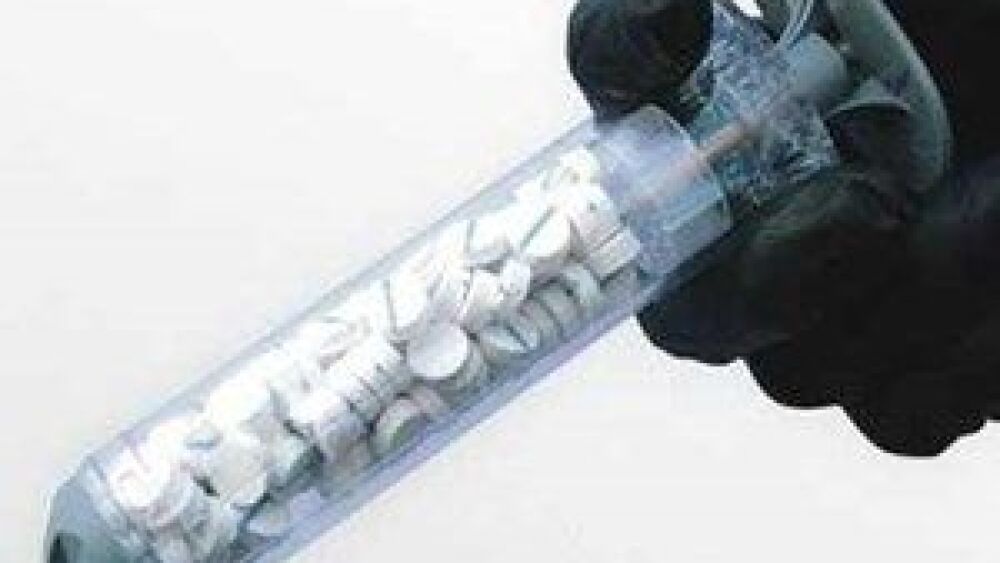On the battlefield, minutes saved can mean lives spared when it comes to stopping the flow of blood from combat wounds.
Current medical practices employed in war zones include packing open wounds with gauze — a method that is both time consuming and painful. Thus, the U.S. military asked medical technology company RevMedx for a product that could more effectively stop service members from bleeding out on the battlefield.
As it turns out, tiny compressed sponges inspired by a trip to Williams-Sonoma were the answer.
RevMedx recently received FDA (Food and Drug Administration) approval for a medical emergency device called XStat. Taking the form of a syringe, XStat rapidly deploys a series of small sponge-like discs into the open wound. Each sponge then expands to 10 times its size, plugging the wound and providing necessary compression. XStat sponges are designed to swell to fit the cavity within 20 seconds of contact with blood and shave off several minutes from previous medical applications, according to the company.
Where did the idea come from?
After RevMedx was confronted with the wound-plugging challenge by the military community, one of the company’s founders was shopping at kitchenware retailer Williams Sonoma. According to CNN, Dr. Ken Gregory came across a kitchen sponge that was sold compressed but would expand to a normal size when splashed with water.
“That was kind of a lightbulb moment,” Andrew Barofsky, RevMedx’s CEO, told CNN.
The concept was applied to medical technology and several variations later, XStat was created.
When will it be ready?
According to the company, the medical device will be available for use in battle later in 2014 and eventually available for paramedics and law enforcement.
First, there are a few kinks to work out, and the effective removal of the sponges from wounds is one of them. Right now, XStat discs are removed for the most part using forceps. Blue radiopaque threads are sewn into the sponges, allowing any leftovers to be detected by x-rays and surgically removed as well.
In the future, RevMedx hopes for a better solution. Both biodegradable designs that could be left in the body and the addition of small strings are in the works.












